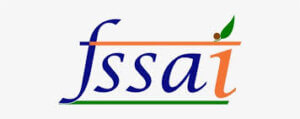FSSAI to Examine Charges Against Nestle regarding claims of Nestle adding sugar and honey to its infant milk and cereal range sold in low- and middle-income countries, sources in the know told Business Standard on Thursday.
The decision comes one day after The Guardian, a British publication, released a report that the multinational consumer goods company included added sugar as sucrose or honey in its Nido and Cerelac products sold across Asia, Africa, and Latin America.
In response to media reports, the National Commission for Protection of Child Rights (NCPCR) has issued a notification highlighting the importance of ensuring strict quality and safety standards for baby foods. This is due to the exposure of this population group and their specific nutritional requirements.
The commission has requested the FSSAI to thoroughly examine the sugar levels in baby food products produced and sold by Nestle and other companies. The FSSAI has been directed to investigate and provide details within a week.
An official from FSSAI stated that Nestle India’s response to the claims seems like an acknowledgment of guilt, although the integrity of the investigating organization is still to be confirmed.
Meanwhile, according to sources at FSSAI, the results of the examination process will be presented to the appropriate scientific committee once it is finished.
A Nestle India spokesperson stated that reducing added sugars is a top priority for the company. They have successfully decreased added sugars by up to 30% in various products over the last five years.

Public Eye’s investigation revealed that Nestle’s Cerelac wheat-based cereals for six-month-old babies sold in Germany and the UK do not contain added sugar, whereas the same product has over 5 grams of sugar per serving in Ethiopia and 6 grams in Thailand.
According to the Public Eye report, in India, all Cerelac baby cereals contain an average of nearly 3 grams of added sugar per serving, with sales exceeding $250 million in 2022. The company offers a range of 15 products in the country.
Nigel Rollins, a scientist at the World Health Organization, expressed his concern about the unacceptable double standard observed in this situation. The report highlighted that Nestle’s decision to add sugar to their products in lower resource settings, while avoiding doing so in Switzerland, is problematic from both a public health and ethical standpoint.
Get regular Food Industry updates on WhatsApp group: Joining link
Share this NEWS with your all Food Technologist Friends.